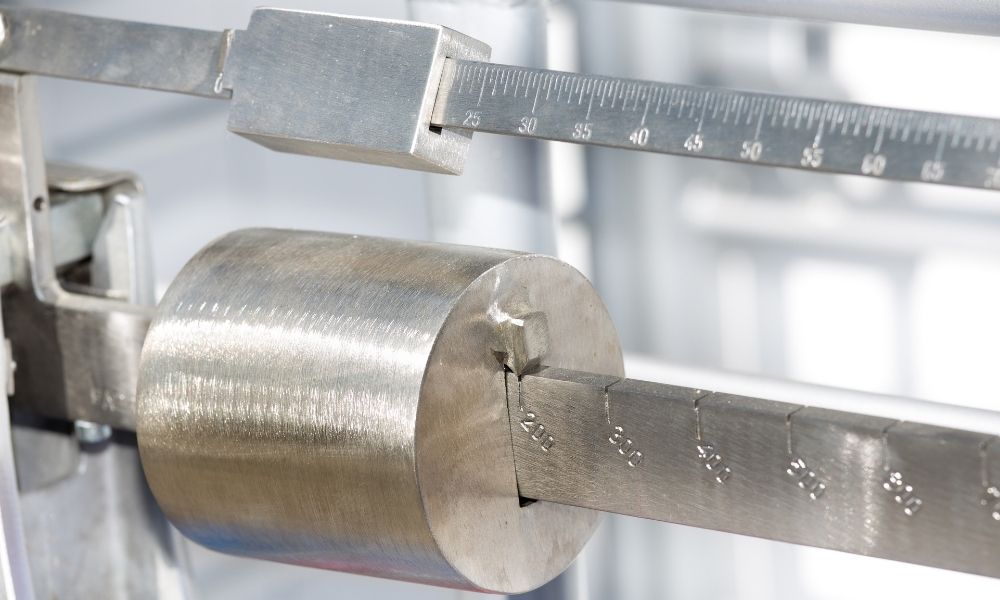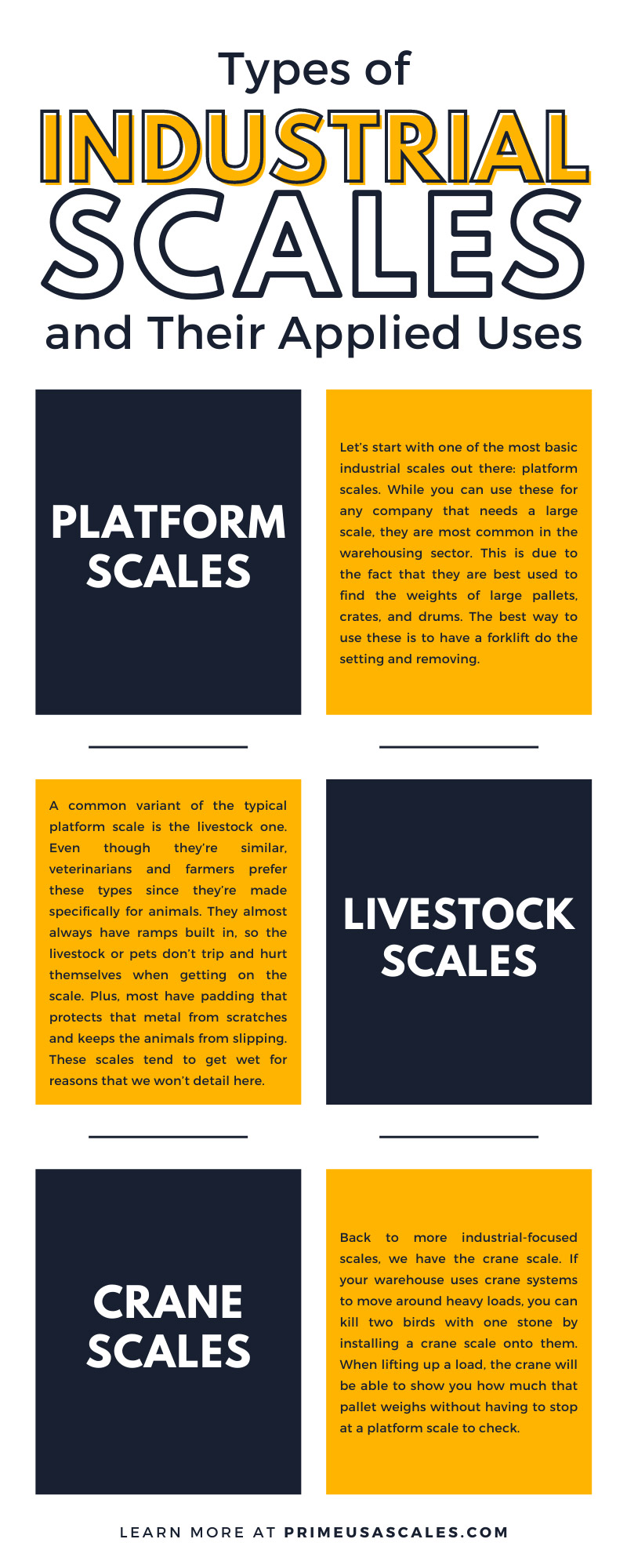Regardless of the industry you work in, the possibility of you needing a scale to weigh particular objects is almost certainly going to be a necessity. While finding the right one for your needs might seem simple, there’s a lot more variety than people realize, which makes finding the perfect one a challenge. Fortunately, we’re here to go over the different types of industrial scales and their applied uses for you.
Platform Scales
Let’s start with one of the most basic industrial scales out there: platform scales. While you can use these for any company that needs a large scale, they are most common in the warehousing sector. This is due to the fact that they are best used to find the weights of large pallets, crates, and drums. The best way to use these is to have a forklift do the setting and removing.
Even though platform scales are low to the ground, if you don’t have a forklift to use, you can buy a variation that has ramps for you to easily roll a pallet jack on top of. Regardless of your technique, these are quite effective.
Livestock Scales
A common variant of the typical platform scale is the livestock one. Even though they’re similar, veterinarians and farmers prefer these types since they’re made specifically for animals. They almost always have ramps built in, so the livestock or pets don’t trip and hurt themselves when getting on the scale. Plus, most have padding that protects that metal from scratches and keeps the animals from slipping. These scales tend to get wet for reasons that we won’t detail here.
The sizes of these scales vary more drastically than standard platform scales, though. This is because a scale that can weigh a full-grown cow probably won’t be able to get an accurate reading on a small dog. Depending on the industry you’re in, you might want to consider a different sized scale.
Crane Scales
Back to more industrial-focused scales, we have the crane scale. If your warehouse uses crane systems to move around heavy loads, you can kill two birds with one stone by installing a crane scale onto them. When lifting up a load, the crane will be able to show you how much that pallet weighs without having to stop at a platform scale to check.
Since these rely on gravity to get a proper measurement, you’ll receive the best results while keeping the crane stationary; however, this still saves a lot of time when compared to adding an additional step to determine the weight.
Pallet Jack Scales
In the same vein as crane scales, we also have ones that have been built directly into pallet jacks. While these scales round out our warehouse pallet scales group, they’re probably the most versatile of them all. Warehouses practically can’t function without the use of pallet jacks, which means that implementing your weighing process into a piece of equipment you already have is a no-brainer. These scales obviously aren’t flawless since quick movements can skew the results, but they are great for saving time on the warehouse floor.
Vehicle Scales
Even though you could determine the weight of a loaded semi-truck by calculating all the individual weights of the items you put in it, you can never be too sure that the numbers will come out accurate that way. That’s why most trucking companies have their own weighbridges and axle scales. Since these groups can receive heavy fines for driving overweight trucks on the highway, they must check the overall weight themselves before sending a vehicle out on delivery.
Weighbridges are the best choice for vehicle scales since they are large enough to fit any vehicle and are very accurate, but axle scales have their uses too. Most notably, most axle ones are much smaller and lighter. That means they are portable, and that the driver can take a set with them to check their vehicle’s weight on the go. Not all trips have the same loads throughout, so these will help ensure the semis stay underweight.
Bench Scales
On the smaller side of the types of industrial scales and their applied uses, we have bench scales. These get their name from the fact that people typically use them on top of workbenches and tables instead of on the floor. They are much more compact, and they’re typically used to find the weights of individual items. Even though they do have some industrial applications, many food-based companies, medical groups, and chemical plants are the ones who use these scales. Their high level of precision is what makes them invaluable to these businesses.
Pocket Scales
While some bench scales can effectively weigh tiny objects, the best type for those items is known as the pocket scale. As the name implies, these scales are called such due to the fact that a person can easily fit one in their own packet. These are best for weighing small objects on the go. Many jewelers use these scales, but those who do crafting or work in offices tend to find uses for them as well. However, they are limited by their size, which is why bench scales are more common.
Counting Scales
For our final type of scale, we have a more unconventional one for you, which is the counting scale. Unlike other ones in our list, people primarily use this scale to find the quantity of a group of similar objects rather than weight. As long as you know the weight of one of the objects, you can use that measurement with this scale to determine how many of them you have without needing to count them individually.
This makes inventory processes much more streamlined overall. Granted, there will be times when the results might not be 100% accurate depending on the variation of the weights on your items, but when dealing with large quantities, it’s a better alternative to counting.
Which Should You Get?
Even though we covered the main applied uses of each type of scale in this blog post, that doesn’t mean that you can’t mix and match them where you see fit. Even though some of these scales are quite different, they still all virtually do the same thing, so it’s up to you and your company on how you want to use them—just make sure you plan accordingly before making a purchase.

